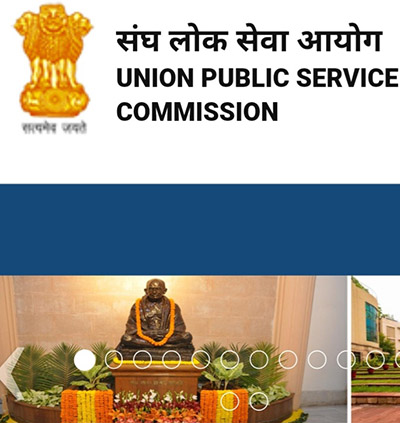SHIMLA/NEW DELHI: In the tranquil embrace of the Himalayas, a simmering storm of discontent is quietly brewing. The Centre of gravity of discontent here is the UPSC, India's top recruiter of the top government jobs.
Will the Modi government respond to this “voice of discontent of Himalayan people”, when it takes a call on filling up three vacant positions of members of Union Public Service Commission(UPSC)?
They are not only bureaucrats, who always get a cake, but there are also “silent voices”, persons of integrity and character, who know mountains, its divinity and its people from within and are a real voice of the Himalayan people”.
Prominent figures in this pristine realm of snow and verdant landscapes are deeply troubled by the "clandestine nature of appointments to UPSC", which has a storied history spanning over 97 years.
Their grievances, though spoken in hushed tones, are not lost on the political elites who govern from New Delhi and least bothered to pay any heed to what Mountain People say or feel.
With few exceptions, the aspirations of Himalayan youth to join the esteemed ranks of the IAS (Indian Administrative Service) and IPS (Indian Police Service) seem as distant as the towering peaks themselves.
This is despite the fact that the Himalayan region encompasses nine states—Himachal Pradesh, Uttarakhand, Arunachal Pradesh, Sikkim, Manipur, Assam, Mizoram, Tripura, Meghalaya—and two union territories, Jammu and Kashmir and Ladakh.
It's not just civil servants but also non-civil service aspirants eyeing a seat at UPSC, as three member positions lie vacant within the Commission. They demand their rightful share of the UPSC pie, which has eluded them for too long.
As UPSC approaches its 97th Foundation Day on September 30, it remains elusive to the mountain communities.
A mere three individuals from the Himalayan region have managed to penetrate its formidable gates: David Syemliye and Mrs. Bathew from Meghalaya, along with Bharat Bhushan Vyas from Jammu and Kashmir—all bureaucrats and perhaps there was one more from Indian army.
But UPSC is conspicuously lacking representation from the "media or civil society".
Notably, the appointments of the two from Meghalaya occurred during the reign of the Congress party at the Centre. The UPSC selection process of its members, shrouded in secrecy for decades, seldom involves public advertisements.
Instead, the Ministry of Personnel and Training and the Prime Minister's Office wield the true decision-making power. The President of India, acting under the UPSC Act, appoints the UPSC chairperson and members.
Currently, it appears that the Southern states hold sway over UPSC, with hints of Finance Minister's influence within the PMO.
Dr. Manoj Soni, the current UPSC Chairperson, assumed office in April 2022 as the youngest-ever chairperson of India’s top recruitment body. His six-year tenure implies significant control over UPSC till 2028. Dr Soni comes from Gujarat and he had stints as Vice-chancellor.
Other members include Miss Meeta Nagaraj, Nayan Chaubey, and Lt. Gen. Raj Shukla (retired) from the army, Mrs. Preeti Sudan, Ms. Suman Sharma, and Bidyut Bihari Swain.
The UPSC comprises a chairperson, and ten members, with their terms governed by the Union Public Service Commission Regulation of 1969.
They are appointed by the President for a six-year term or until the age of 65, whichever comes earlier, under Article 316 of the Constitution of India.
What stands out starkly is the complete absence of Himalayan representation in UPSC.
This region, renowned for its rich culture, and strategic and ecological significance, not only lacks representation in selection but also a voice within the UPSC itself.
Many in the media have worked silently to promote Himalayan culture, preserve its ecology, and address critical issues and strategic importance, yet they remain as good as ignored and marooned.
For those outside the civil services, there seems to be no clear qualification other than eminence in their respective fields. However, the current government appears to have its own preferences, that may or may not spot or identify the "deserving voices".
As it stands, the Himalayan region calls for equitable representation, not just in UPSC selection but within the UPSC institution.
The story is no different when one talks about State Public Service Commissions. In Himachal, for instance both chairperson and members are appointed without advertising the positions, by the Chief Minister making mockery of the transparency.
This is not only true of UPSC and State Public Service Commission but all Commissions working at tge center and the state level.
The voice of people resonates through the mountains: It's time to grant them their rightful place. Will the Centre heed this call as it fills the three vacant member positions on the Commission?








